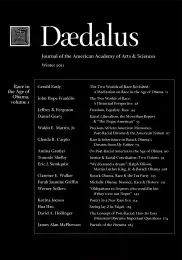Precious African American Memories, Post-Racial Dreams & the American Nation
This interdisciplinary essay explores a fundamental paradox at the heart of American race relations since the 1960s: “the changing same.” The more things change; the more they remain the same. Combining historical and social-scientific evidence with autobiographical reflections, this discussion critically probes the paradoxical decline and persistence of two dimensions of our enduring racial quagmire: racial inequality and white supremacy. The essay argues that these powerful and interrelated elements of America’s continuing racial dilemma demand a massive democratic movement to alleviate both at once. This wide-ranging struggle to realize the promise of American democracy requires more than just a revitalized African American Freedom Struggle that is both intraracial and interracial. Progress toward resolving the seemingly intractable problem of racial inequality in the United States demands far more than intensified efforts to alleviate economic inequality; it requires alleviating white supremacy as well.
Precious memories, how they linger
How they ever flood my soul
In the stillness of the midnight
Precious, sacred scenes unfold.
–From “Precious Memories,” composed by Willie Nelson and performed by Aretha Franklin and James Cleveland1
Where are the nametags? Throughout the weekend’s activities, this question overwhelmed me. We had gathered to celebrate our fortieth high school reunion, having proudly graduated from James B. Dudley High School in Greensboro, North Carolina, in 1969. Yet I barely recognized many of my former high school classmates. Those willing and able to be a part of the festivities were looking good, of course. Most of us had put on a few pounds, showed gray, thinning, or no hair, and moved less vigorously now, notably on the dance floor. If I squinted hard, the shock of recognition sometimes emerged. More often than not, though, I was quizzical, asking myself and anyone who would listen, “Whose idea was it to ignore nametags?”
One thing remained clear: we all were still solidly black. In 1969, Dudley remained an all-black institution. School desegregation came several years later. For those of us fortunate enough to attend the reunion in 2009, the anniversary brought back a flood of memories and sparked innumerable conversations about the courses and meanings of our lives. One fact was inescapable and palpable: blackness and its recent history have profoundly shaped who we have become and how we see the world.
. . .
